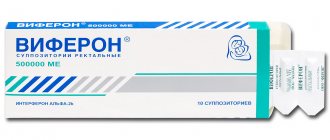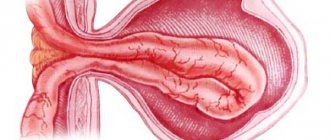Itching in the groin can occur in men for many reasons. The condition is provoked by both physiological and pathological factors. To eliminate the risk of affecting the reproductive system, timely contact with a urologist is recommended. He will not only conduct a general examination, but also prescribe tests, which will help to timely determine the diagnosis and begin treatment.
Causes of groin itching
Identifies the following physiological or temporary causes leading to the symptom:
- poor hygiene, which causes sweat and dirt to accumulate, pores become clogged, and an active process of inflammation begins;
- the content of various substances in the urine that cause redness, irritation, diaper rash, and rash;
- use of low-quality, synthetic underwear.
If one of the listed factors occurs, it can be easily eliminated. It is enough to maintain hygiene and use natural linen. The symptom will disappear quickly. Treatment is required if pathologies become a provoking factor:
- diseases of the urinary system, due to which bacteria, fungi, and urine breakdown products accumulate;
- endocrine pathologies, for example, thyroid dysfunction;
- genitourinary system infection, sexually transmitted diseases;
- activation of painful microorganisms as part of opportunistic microflora;
- spread of scabies mite;
- decreased immune function;
- genital herpes;
- complications of diabetes.
When pathology develops, mandatory drug treatment is required.
Diagnostic stages
If symptoms appear, contact a urologist. He may prescribe an additional consultation with a venereologist, allergist, or dermatologist, depending on the developing clinical symptoms. Laboratory and instrumental tests are required to determine the exact cause.
- General inspection
. The doctor examines the man’s penis and adjacent tissues. It can detect redness, inflammation, swelling, discharge and other negative reactions. - Anamnesis collection
. The patient explains his complaints and talks about recent changes in his life. He is always asked about hereditary diseases in the family. - PCR technique
. Detects any types of viruses and bacteria contained in urine or discharge from the penis. - Bacteriological culture
. The mucus is inoculated on a nutrient medium, and the exact type of bacterial pathogen is identified. Determine the antibiotics to which it is sensitive. - General blood test, biochemical test, general urine test
. These are general clinical studies that indicate the condition of the body as a whole, separately the blood, immunity and urinary system.
Thanks to diagnostic tests, you can accurately determine the diagnosis.
How is it diagnosed?
The diagnosis can be made by visually examining the affected area and studying the existing symptoms. It is important not to confuse irritation and emerging diaper rash with:
- erythrasma;
- neurodermatitis;
- dermatophytosis or psoriasis.
A consultation with a doctor is necessary because only a specialist can determine the cause of the pathology and prescribe treatment that is appropriate for a particular case.
General symptoms
If the itching in the groin does not disappear even after good hygiene and the use of natural underwear, it is necessary to collect the patient’s medical history. It includes all the negative symptoms that he is currently developing or have suffered in the past. The patient may have developed a sexually transmitted disease with the following symptoms:
- rash localized to the genitals or groin;
- burning, irritation, pain, stinging;
- increased discomfort during urination or sexual intercourse;
- mucous, purulent, bloody discharge from the urethra;
- redness and swelling;
- white plaque on the head of the penis;
- discomfort, pain in the testicular area.
The following infectious pathologies affecting the reproductive system are distinguished:
- ureaplasmosis, chlamydia;
- genital herpes;
- pubic louse, mite.
These are the most common diseases affecting the urethra and other parts of the urinary tract. If pain, burning, itching and heavy infiltration occur, infection with syphilis is possible.
It is extremely rare for men to develop candidiasis. This is a fungal infection accompanied by itching and profuse discharge from the glans penis.
How does irritation manifest and what does it mean?
There are several main local and general symptoms that accompany irritation. Here are some of them:
- Pain in the problem area of the body.
- Itching, burning.
- Sleep problems.
- Increased nervousness.
- Bad mood.
It is worth considering that even the most harmless redness can develop into an inflammatory process. But before that it must go through several stages:
- The skin is slightly damaged, only slight redness is noticeable.
- The appearance of cracks and ulcers. In case of infection development - ulcers.
- Severe erosions with a gray-brown coating and blood impurities. There is a foul odor from the wound.
Symptoms appear quickly but gradually. Severe inflammation can form within 2–4 weeks or within a couple of hours.
Here's what it all looks like in the photo:
Characteristics of diseases that cause itching
The table shows the main diseases and their brief characteristics.
| Disease | Description |
| Candidiasis | When it spreads to the head of the penis, itching develops. He is strong, constant, a man rarely experiences such sensations normally. Infection occurs through transmission of the infectious agent from a sexual partner, development of immunodeficiency, and diabetes mellitus. Copious white mucus may be released from the urethra and an unpleasant odor may appear. Therapy is carried out using antifungal drugs and immunostimulants |
| Dermatomycosis | Urine can accumulate in the groin area, causing a moist environment. Pathogenic fungi begin to develop in it, leading to itching, rash, and burning. In damp conditions, a bacterial infection occurs, which aggravates the symptoms of the disease. The condition often occurs in athletes who do not use hygiene techniques after active training. Red spots appear on the dermis, blisters spread to the groin area. Treatment is carried out using antimycotic, antihistamine drugs |
| Herpes | The disease is transmitted after unprotected sexual intercourse from an infected partner. Bubbles filled with a pathogen appear on the penis. The rash gradually moves to the groin area, thighs, and buttocks. Treatment is carried out using antiviral drugs |
| Chlamydia | An infection that spreads after unprotected sex. There is severe pain and pain when urinating. Burning and itching are observed at any time of the day. Systemic and local antibiotics are used for treatment. To speed up recovery, take immunostimulants. During treatment, sexual intercourse is prohibited |
| Ureaplasmosis | These are bacteria of opportunistic microflora, activated by the action of negative factors. The patient is bothered by strong, profuse discharge and groin itching. If the disease is not treated promptly, infertility develops. Therapy is carried out in the acute period using antibiotics and physiotherapy |
| Dermatitis | An allergic reaction develops, which can be triggered by food, cosmetics, and underwear. Antihistamines with local and systemic effects are used for treatment. Increase the frequency of hygiene procedures |
| Scabies | The scabies mite is transmitted through dirty hands and bedding. Gradually it affects the deep layers of the epidermis, causing a rash and itching on the dermis. Antiparasitic agents are used that destroy the pathogen itself and its eggs |
| Diabetes | With pathology, metabolism is disrupted, the level of urea and urination increases. A humid environment is formed in which bacteria and fungi quickly multiply. A person is bothered by a persistent rash that is not affected by medications. Itching is localized in the area of the penis, testicles, anus, perineum |
If a person develops dermatomycosis, the tissues of the genital organs are not affected. Only the groin is affected.
What allergic reactions cause the pubis to itch?
Pathological conditions of an allergic nature, which are characterized by damage to the skin of the pubis and genitals, are called genital allergies.
Symptoms depend on the form of the disease.
Genital allergies are manifested by redness, swelling, itching, burning and dry skin at the site of the lesion.
Certain allergenic substances provoke a specific immune response.
The mechanism of allergens entering the human body is local or systemic.
The local mechanism is when the allergen comes into direct contact with the skin, in our case the pubis.
The systemic mechanism involves penetration of the allergen parenterally, through the gastrointestinal tract or lungs.
A cascade of pathogenetic transformations potentiates local changes in the pubic skin.
Allergic nature is noted in:
- contraception
- male sperm
- all kinds of medications
- cosmetics and hygiene products
- underwear
An allergic reaction is always characterized by redness of the skin and itching.
Occasionally swelling of the pubis.
Starting period of therapy
If a person is bothered by itching, he should immediately consult a doctor and begin treatment as early as possible. Many infections can affect the genitals, causing many complications, including infertility. The earlier therapy is started, the lower the risk of their development.
Lack of quality hygiene
This is one of the most common problems that cause itching in the groin. You are required to shower at least once a day. To relieve disturbing symptoms, use a decoction based on plant extracts:
- chamomile, calendula, string;
- oak bark, celandine.
To prepare a decoction, take one or several plants at once and pour boiling water over it. After infusion and straining, wash the area of the penis and adjacent tissues.
After treatment, wipe the skin dry with a towel. Next, apply a regenerative and moisturizing cream. For example, Sinaflan.
Sinaflan is a glucocorticosteroid intended for external use. It eliminates inflammation, allergies, exudate, and active itching. The action is formed by suppressing the negative influence of the immune system. The drug is applied to the affected skin. Sinaflan is recommended for use for dermatitis, psoriasis, eczema, and skin itching of various origins. It is used up to 3 times a day. The drug has a small list of side effects that develop extremely rarely:
- purpura, telangiectasia, skin atrophy;
- hypertrichosis, secondary infection, perioral dermatitis.
The product is not recommended for pregnant women with bacterial, fungal, or viral infections. With prolonged use, the steroid causes a decrease in blood supply to tissues, so atrophic processes may develop. Because of this factor, doctors prescribe the drug in a short course, up to 1 week.
Food allergies
Itching is provoked by foods that cause allergies. Treatment is required to relieve the acute condition:
- taking an oral antihistamine;
- application of an intimate gel with a neutral acid-base state;
- treatment with an antiseptic solution, for example, Furacilin;
- applying baby powder.
During therapy, they refuse synthetic underwear and do not visit the sauna, bathhouse, or swimming pool. Any sexual intercourse is possible after completion of therapy.
After 3-4 days, the patient’s condition completely normalizes. But in the future you will need to eliminate foods that cause hypersensitivity.
Candidiasis
Candidiasis in other words is called thrush. To eliminate it, use the following measures:
- frequent hygiene procedures, you can use herbal decoctions for treatment;
- applying antifungal ointments containing clotrimazole or fluconazole;
- in severe cases, an oral antifungal drug is used, but in a short course, so as not to cause a load on the liver.
Follow a diet low in dairy products, sugar, and baked goods.
Ureaplasmosis
It is almost impossible to completely destroy ureaplasma from the body. But it is necessary to reduce its concentration by using antibacterial agents. For example, Doxycycline, Josamycin. Additionally, immunostimulants are used so that the body can fight the infection on its own.
Ureaplasmosis is dangerous because it does not cause negative clinical symptoms for a long time. But gradually, without treatment, it penetrates deeper and deeper into the urethra, spreading to the internal genital organs. This can lead to infertility. If a man transmits a pathogenic microorganism to a woman, reproductive dysfunction occurs much faster.
Antibiotics are used for treatment, but it is impossible to completely eliminate the pathogenic microorganism, since it belongs to the bacteria of opportunistic microflora. Therefore, a man must monitor the condition of the penis and the discharge from it. If any changes occur, immediately make an appointment with a urologist.
Chlamydia
The earlier treatment for chlamydia is started, the lower the risk of damage to the reproductive system, including infertility. Treatment methods:
- oral antibiotics - Ceftriaxone, Amoxiclav, Azithromycin, Macropen;
- immunostimulating drugs - Lysozyme, Dekaris;
- enzymes to improve intestinal microflora - Mezim;
- probiotics - Normobact.
If you use drugs in combination, recovery occurs faster.
Genital herpes
If a person has genital herpes, the condition is accompanied by a profuse rash, it is necessary to immediately begin antiviral therapy:
- an antiviral agent containing acyclovir;
- interferon-based immunostimulants.
Herpes is a rather dangerous disease that causes complications. Therefore, the choice of drug depends only on the doctor; it is forbidden to change its dosage on your own.
Scabies mite
The microorganism quickly causes severe, long-lasting itching. The place where it is located needs to be lubricated with special creams. For example, Crotamiton, Lindane. Therapy is long-term, at least 10 days.
Why does pubis itch in women?
In women, the pubis most often itches due to irritation after cosmetic procedures (hair removal, depilation, intimate hairstyle).
In addition, lovers of various extreme sex often itch.
There are women with sensitive skin.
Their pubis itches from all kinds of chemical irritants (intimate hygiene products), and, in particular, from chlorinated water, for example in a swimming pool.
These problems can be solved with the help of special soothing creams, gels and showers made from non-chlorinated water.
Sometimes menstruation can cause pubic itching.
You need to consult a gynecologist to determine the cause and solve the problem.
The causes of pubic itching in men are also common in women.
This includes violations of hygiene rules.
We need to remember this, especially since violation of intimate hygiene for women, due to the anatomical features of the female body, is more dangerous.
All diseases that cause pubic itching in men also cause it in women.
If the reasons for the itching are not medical, then the main thing to combat itching is to follow the rules of hygiene.
If shaving and depilation cause itching and irritation of the skin, then for treatment you need to use creams that relieve skin irritation.
To relieve skin irritation, use miramistin or chlorhexidine.
If you are intolerant to hard water, soften it with vinegar or lemon juice.
But it is better to use special intimate hygiene products to maintain the balance of the internal environment of the genitals.
Thrush must be treated with specific therapy and a special diet (to improve the effectiveness of treatment).
Otherwise, relapses will occur, and the medication will need to be resumed.
This is very important if vaginal discharge is very profuse.
Prevention methods
To prevent the development of groin itching, it is recommended to use preventive measures in a timely manner:
- frequent hygiene of the genitals and the whole body;
- periodic preventive examination by a urologist with laboratory tests (especially for the presence of STDs);
- treatment of any pathologies with prescribed drugs, use of the full course of therapy to reduce the risk of relapse and complications;
- constantly wearing clean, natural underwear;
- frequent washing of personal hygiene items and bed linen;
- periodic use of tar soap, which eliminates fungus and reduces itching due to allergies;
- the use of barrier contraception during sexual intercourse, especially if a man prefers frequent changes of sexual partners.
It is best not to self-medicate. This can lead to negative consequences, since the patient will not be able to independently select the optimal medications and their dosage. Therapy should be selected only by a urologist, therapist, venereologist and other doctors of narrow specialties.
Treatment
To definitely get rid of excessive sweating in the groin and cure the itchy area of the skin, you should seek help from a clinic. There are several treatment options.
Botox treatment
Today this method is the most effective. Injecting Botox into the groin area can reduce the intensity of sweat production. It is enough to attend a few sessions to forget about this delicate problem. The advantage of this method is its immediate effect. The patient stops sweating almost immediately. The maximum result is achieved only after a few months.
Surgery
This method of treatment is used extremely rarely. The fact is that surgical intervention can damage the nerve endings that lead to the bladder and genitals.









